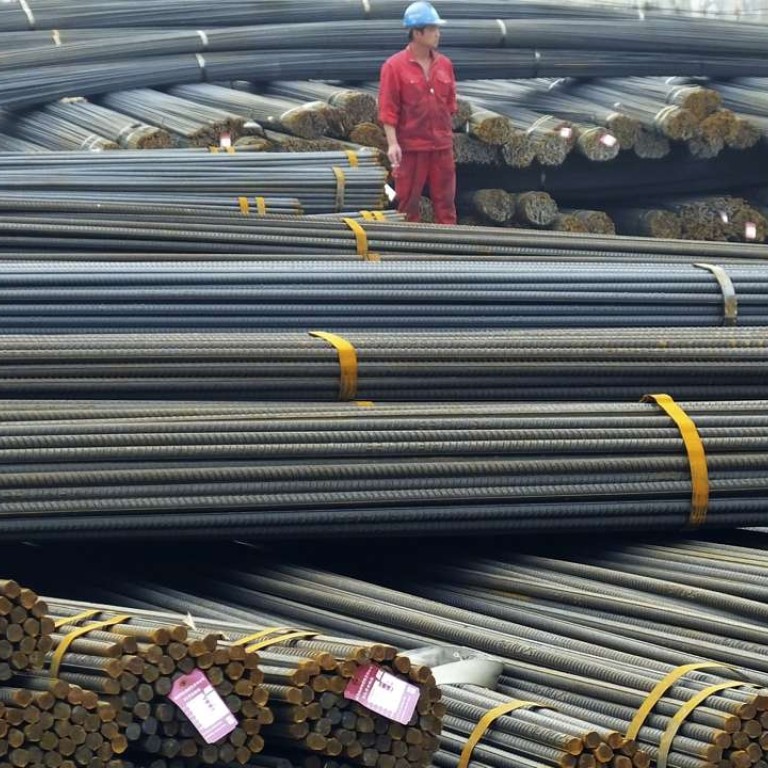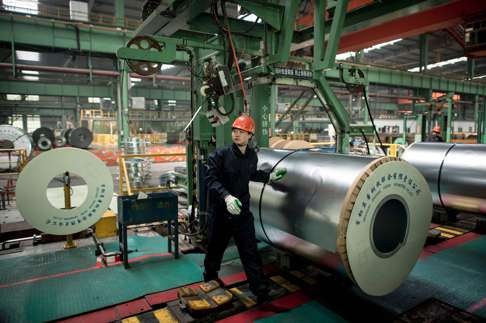
European industry groups call for EU leaders to show ‘backbone’ on overcapacity in summit talks with China
European industry groups called on EU leaders to show some “backbone” in their dealings with China on industrial overcapacity and market economy status at a bilateral summit that started on Tuesday in Beijing.
Aegis Europe, a group of nearly 30 industrial associations, has pressed Jean-Claude Juncker, president of the European Commission, and Donald Tusk, president of the European Council, “to take a clear position against Chinese dumping, overcapacity and illegal subsidies”.
Disputes about overcapacity in steel and other manufacturing sectors, which have become intertwined with the debate over whether to grant market economy status (MES) to China at the end of the year, are expected to be raised during the two-day EU-China summit in Beijing.

China is not a market economy and, therefore, cannot be granted the market economy status by the EU
“It is of critical importance for all European industries that anti-dumping measures are calculated properly and remain effective and possible under EU trade law.
“China’s state-planned economy systematically orchestrates overcapacities and then offers products below production costs in international markets to overwhelm competition.”
Angry steel workers have protested in Brussels and other cities in Europe, criticising the inflow of cheap Chinese products into the EU market, which they claim have endangered their jobs and local production.
China’s state-planned economy systematically orchestrates overcapacities and then offers products below production costs in international markets to overwhelm competition
“Chinese overcapacities affect all non-ferrous metals,” Guy Thiran, director general of Eurometaux, the European non-ferrous metals association, was quoted as saying in the statement.
“Take aluminium for example: China’s share of global production has skyrocketed to over 50 per cent in the last decade.
“Over the same period, a third of EU smelters closed their doors. With China’s overcapacity now five times bigger than EU primary production, granting MES prematurely presents a real risk to 80,000 hard-working aluminium workers,” Thiran said.
The European Parliament said in a non-binding resolution in May that it “strongly opposed” the status being conferred to China later this year.
Although China’s central government promised to cut overcapacity, there are signs that local governments are reluctant to do so
However, hopes remained dim for the bilateral parties to reach a solution over the short term, including during the China-EU summit, observers said.
“EU does not have an agreed position on the market economy status yet,” Michael Clauss, the German ambassador to China, said. “I expect overcapacity, which is related to the issue of China’s market economy status, to be one of the big topics at the EU-China summit.”
China’s total crude steel capacity stood at 1.13 billion tonnes in April.
Beijing has aimed to cut steel capacity by 200 million tonnes by 2020, and officials estimated that it might lead to lay-offs of up to 500,000 workers in the steel sectors.
Officials in Beijing said China would not address overcapacity by increasing exports.
However, there are concerns that local governments lack the impetus to make big strides because of fears of social unrest caused by such big lay-offs.
“Although China’s central government promised to cut overcapacity, there are signs that local governments are reluctant to do so,” Clauss said.
Beijing has insisted that steel overcapacity is a global problem and that the mainland is not the main cause. It has placed the blame on the rise of trade protectionism policies aimed at Chinese products.
Trade ministers in the Group of 20 nations pledged on Sunday to take effective steps to address overcapacity in steel and other industries and vowed to set up a global platform to improve cooperation.

